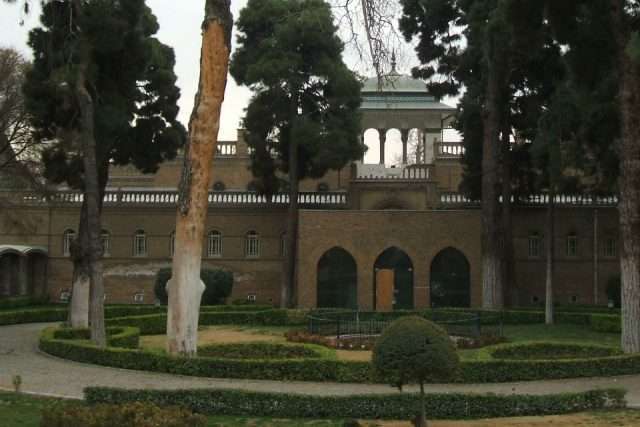New Great Britain’s approach to the JCPOA

Geopolitical Report ISSN 2785-2598 Volume 19 Issue 9
Author: Abed Akbari
In recent weeks, Great Britain has backed the nuclear deal with Iran by changing its previous positions. According to the spokesman for British Prime Minister Boris Johnson, the main reason for that is the desire to establish economic relations with Iran as soon as possible.
While some opponents of the Joint Comprehensive Plan of Action (JCPOA) in the West believe that this agreement can be challenged until its end and then a deal with a higher level of influence can be imposed on Iran, others, mainly European countries for which the non-proliferation system is significant, are against such approach.[1] At the same time, significant geopolitical changes at the world level, including the US-China confrontation, Russian military operations in Ukraine, and the loss of a strategic role in the Middle East, are among the reasons for global powers’ flexibility on the nuclear issue around the world, and in particular the nuclear deal with Iran.
British Strategy on the Iranian nuclear deal
Having full membership in the UN Security Council, Britain is directly affected by global developments. On the other hand, exiting the European Union, the country needs to develop trade relations with non-European partners. By membership in the AUKUS pact, Britain joined China’s outspoken opposition front last year, paving the way for future economic ties with Beijing. Moreover, with the withdrawal of the United States from Afghanistan, London also withdrew from joint management of the Eastern European neighbourhood. Therefore, London needed to re-establish bilateral relations with several regional countries to compensate for the loss of a strategic role.
In response to recent geopolitical changes and coordinated with the Western front, Britain closed all economic avenues to Russia after the Russian invasion of Ukraine and imposed sanctions on the country. At the moment, on the issue of energy supply, Britain is facing the vital question of which supplier will be able to replace Moscow, and this issue explains the reason for Britain’s turn to Iran and Saudi Arabia.
Nevertheless, there is a significant difference in the attitude towards Tehran and Ryadh; the recent execution of 81 Shiites in Saudi Arabia has drawn strong opposition from human rights activists in Britain.[2] Boris Johnson’s trip to Saudi Arabia to resolve economic and energy issues was accompanied by protests. Human rights activists called the deal the “blood-for-oil deal” and called its policy a double standard: Britain joined international sanctions on Russia while has remained silent in the face of the bloody execution of Shiites in Saudi Arabia.[3] However, several people who consider Russia an international threat in Britain did not have the same stances on Saudi Arabia.
On the other hand, the security importance of the Iranian nuclear issue has diminished in light of recent international developments. Regarding sanctions against Iran, the leniency of the U.S. officials indicates a change in the position on nuclear matters. Britain’s turn towards Iran and the JCPOA was a consequence of the British economy and issues such as the US disengagement from the Middle East and the increasing decisional autonomy of London.
Therefore, Britain seems to see the nuclear deal as a way to have economic ties with Iran and is waiting to gain access to that agreement. As Johnson’s spokesman stated, establishing constructive relations with Iran is Britain’s ultimate goal, and not just reaching a nuclear deal.[4]
Conclusion
Reaching a nuclear deal with Iran has been much more important to Britain than to Germany and France in recent months. While other European members had to deal with domestic issues, such as the French election, Britain is working on the Iran nuclear talks in the direction of reaching an agreement. As many observers and experts point out, the release of dual nationals by Iran[5] and the payment of 400 million euros in Iranian claims by Britain are signs of reopening the agreement and Britain’s hope to reach a nuclear deal with Iran.[6] A nuclear deal with Iran could also release about 1.5 billion barrels of Iranian oil.[7]
Seeking alternative energy suppliers to Russia, Britain needs to reach an agreement and establish relations with Iran both in the economic field and in the Middle Eastern security. Therefore, a great opportunity has been provided for Iran. While reaching a nuclear agreement, Tehran might reach other significant economic or security agreements with European and non-European countries and establish long-term cooperation, especially in the energy field. This regionally and internationally situation has provided Iran with a position that is hoped to be well.
Sources
[1] Mehr News Agency (2022) US max. pressure on Iran failed to produce results: Blinken. Link: https://en.mehrnews.com/news/186162/US-max-pressure-on-Iran-failed-to-produce-results-Blinken.
[2] United Nations (2022) UN rights chief decries mass execution of 81 people in Saudi Arabia. Link: https://news.un.org/en/story/2022/03/1113922.
[3] Aubrey Allegretti (2022) Boris Johnson upbeat on Saudi oil supply as kingdom executes three more, the Guardian. Link: https://www.theguardian.com/politics/2022/mar/16/boris-johnson-upbeat-on-saudi-oil-supply-as-kingdom-executes-three-more.
[4] The Print (2022) UK seeks to strengthen economic ties With Iran: Johnson’s Aide. Link: https://theprint.in/world/uk-seeks-to-strengthen-economic-ties-with-iran-johnsons-aide/925734/.
[5] UK Parliament, House of Commons Library (2022) Dual nationals imprisoned in Iran. Link: https://commonslibrary.parliament.uk/research-briefings/cbp-8147/.
[6] Holly Bancroft (2022) Nazanin Zaghari-Ratcliffe released ‘after UK paid £400 million debt’, Iran media claims, Independent. Link: https://www.independent.co.uk/news/uk/home-news/nazanin-zaghari-ratcliffe-nazanin-uk-iran-b2037030.html.
[7] Herman Wang, Aresu Eqbali (2022) Tightening oil market eyes Iran nuclear talks, as deal could be near, Spglobal. Link: https://www.spglobal.com/commodityinsights/en/market-insights/latest-news/oil/022122-tightening-oil-market-eyes-iran-nuclear-talks-as-deal-could-be-near.
Disclaimer. The views and opinions expressed in this article are those of the author and do not necessarily reflect the official policy or position of SpecialEurasia.
